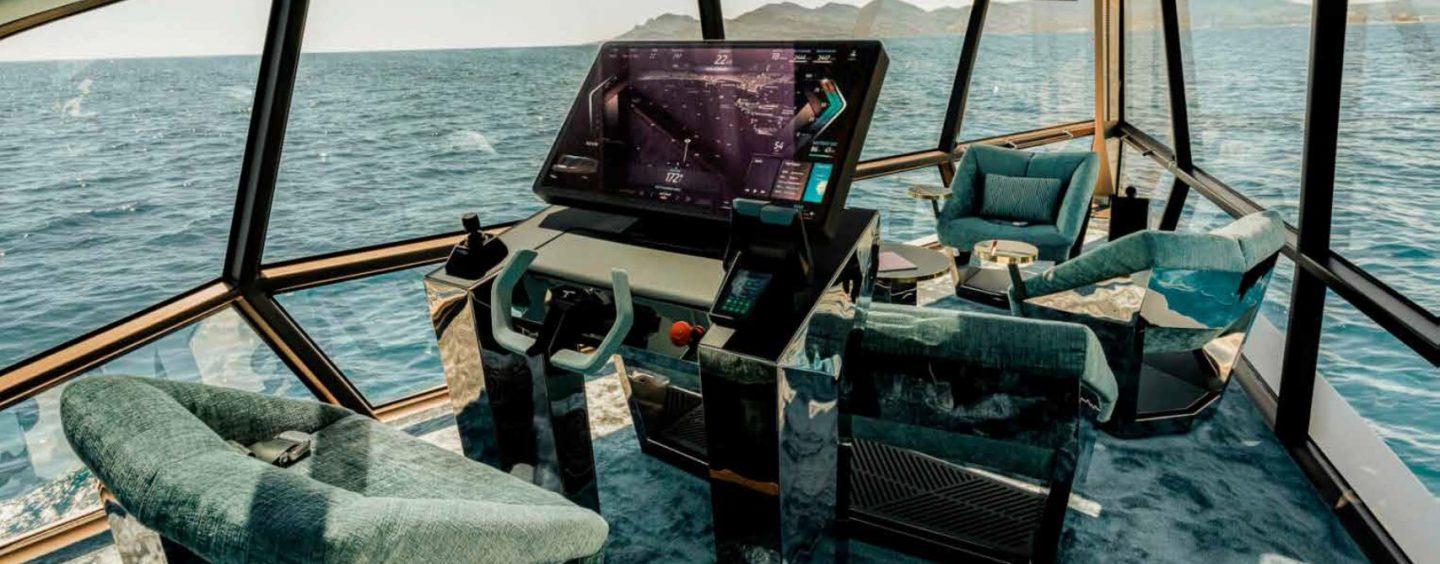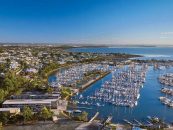
PROPELLING OUR FUTURE – New research reveals unique multi-path approach to decarbonising recreational boating
The buzzword these days for governments and industries is the term “decarbonisation”. It is not a new concept, as it has been used in engineering and chemistry to mean the removal of carbon or material containing carbon from a substance or from an object, such as an engine. However, the reason it is becoming a popular term is in the context of environmental sustainability, where decarbonisation, according to Cambridge Dictionary, means “to stop or reduce carbon gases, especially carbon dioxide, being released into the atmosphere as the result of a process, for example the burning of fossil fuels.”
If you are wondering why we are talking about it here, the answer is simply because the global recreational industry has joined the worldwide campaign to decarbonise. In a research commissioned by the International Council of Marine Industry Associations (ICOMIA) in 2023, entitled Pathways to Propulsion Decarbonisation for the Recreational Marine Industry, the findings show that recreational boats only contribute a tiny amount (less than 0.1%) to global greenhouse gas emissions. In fact, most emissions come from powering homes and industry (46%) and transportation (14%).
Despite being a small contributor, the recreational marine industry has made significant strides in reducing emissions from boat engines (by over 90%) and improving fuel efficiency (by over 40%) in the past 20 years. The industry is committed to continuing its conservation efforts to protect the marine environment and finding ways to do even more. The research, which specifically looks at marine propulsion in boats under 24m in length, reveals that due to the unique on-water environment for recreational boating, and the varied interests of boaters and the experiences they seek, a variety of solutions must be considered to continue reducing carbon emissions from recreational boats.
“Our love for boating is fundamentally reliant on a healthy and sustainable marine environment, and we must take care of it to ensure the experiences boating provides can be enjoyed for generations to come,” said Darren Vaux, president of ICOMIA. “For the first time, we’ve united the global recreational marine industry around our most comprehensive, peer reviewed research to explore opportunities that could reduce recreational boats’ carbon emissions, giving us the data we need to begin educating policy makers, our stakeholder community, and boaters on the varied decarbonisation solutions unique to our industry. This new research provides guidance on the focus for the innovations we can begin exploring today to create a better boating experience that reduces our environmental footprint.”
UNIQUE DEMANDS FOR REDUCING RECREATIONAL BOATING CARBON EMISSIONS
Recreational boats are considerably different from most other modes of transportation, including automotive (onroad vehicles). Unlike automobiles, which are relied on to get from point A to B, recreational boats are used for leisure and vary significantly in not only how, but how often, they are used (e.g., many gasoline-powered recreational boats are operated an average of 35 to 48 hours per year). The research also looked at the impact on cost of ownership based on propulsion technology, and compared to boats on the water today, increases in cost of ownership ranging from 5% to 250% are expected until alternatives achieve market scale.
Due to the diversity of the types of boats in use and the varied experiences sought by boating consumers from fishing to watersports to cruising, the research shows there is no universal “one-size-fits-all” approach to decarbonise recreational boats. As a result, in addition to current internal combustion and fossil fuel powered boats, the industry must consider a portfolio of technologies, including:
Sustainable liquid marine fuels, such as renewable drop in fuels, are expected to be the most suitable source of energy to decarbonise recreational boats by 2035 – by as much as 90% – without compromising the distance a boat can travel or its performance. Of the approximately 30 million recreational boats in use worldwide, with an average total lifecycle of 40 to 50 years and global annual sales making up approximately 2% of the size of the current market, there is great potential for increased decarbonisation of recreational boats with immediate, widespread adoption of sustainable marine fuels.
Hydrogen is an emerging technology and another potential source for reducing carbon emissions from boats, as long as its production process is optimised. Hydrogen, if produced via electrolysis with zero fossil fuel electricity, can reduce carbon emissions for certain craft categories.
Electric propulsion is part of the strategy to decarbonise, however, it is not universally suitable for all types of recreational craft and use cases. Electric-only propulsion may have a higher GHG contribution from raw materials and manufacturing than conventional propulsion systems.
Watercraft types with lower utilisation are unlikely to find that battery electric systems yield a reduction in GHG compared to the baseline internal combustion engine.
It is important to note that this study considers both battery lifetime in years and recharging cycles as battery performance is expected to degrade over time regardless of utilisation. This could impact watercraft that have a long lifespan but are not frequently utilised as it may require several battery replacements throughout its lifetime.
Hybrid boats that use both electric and internal combustion engines powered by liquid fuels offer the potential for reducing carbon emissions from boats in certain scenarios—namely boats used for longer periods of time and for greater distances. As a result, hybrid technology provides the most potential for emissions reductions for boats that are used for rentals and other high-use environments.
The key next steps the global recreational marine industry is seeking include:
–The adoption of a technology neutral decarbonisation approach for marine environments.
–An acceleration of the development and distribution of sustainable marine fuels and consumer education campaigns that support the adoption of these new fuels.
–Consumer safety and government entities partnering with the recreational marine industry to establish marine electric technology standards and consumer safety protocols.
–An expansion of R&D tax credits and investments to improve electric battery density and hydrogen research that can be applied to the marine environment.
–Continued research to evaluate existing and emerging technologies and how to best apply them to the unique marine environment.
According to Vaux, the industry is very supportive of the latest innovations to create better boating experiences. “Sustainable marine fuels allow boaters to act now while the industry continues innovating and investing in new technologies that push the boundaries of what’s possible. Through this research and a global education campaign, we’re uniting the recreational marine industry around a portfolio of solutions that creates positive change through multiple pathways and a framework to collectively move our industry forward.”
ICOMIA has launched Propelling Our Future, an international campaign to educate and advance the industry on research-driven technology solutions. You can find the copy of the full research report, as well as the summary, on their website.
propellingourfuture.com
IS DECARBONISATION THE FUTURE FOR YOU?
We are really interested in knowing what your thoughts are on decarbonisation of recreational boats, and how you think it will impact your boating experience. Let us know by emailing us.
ed****@bo***********.au
Published in print August-December 2024


































